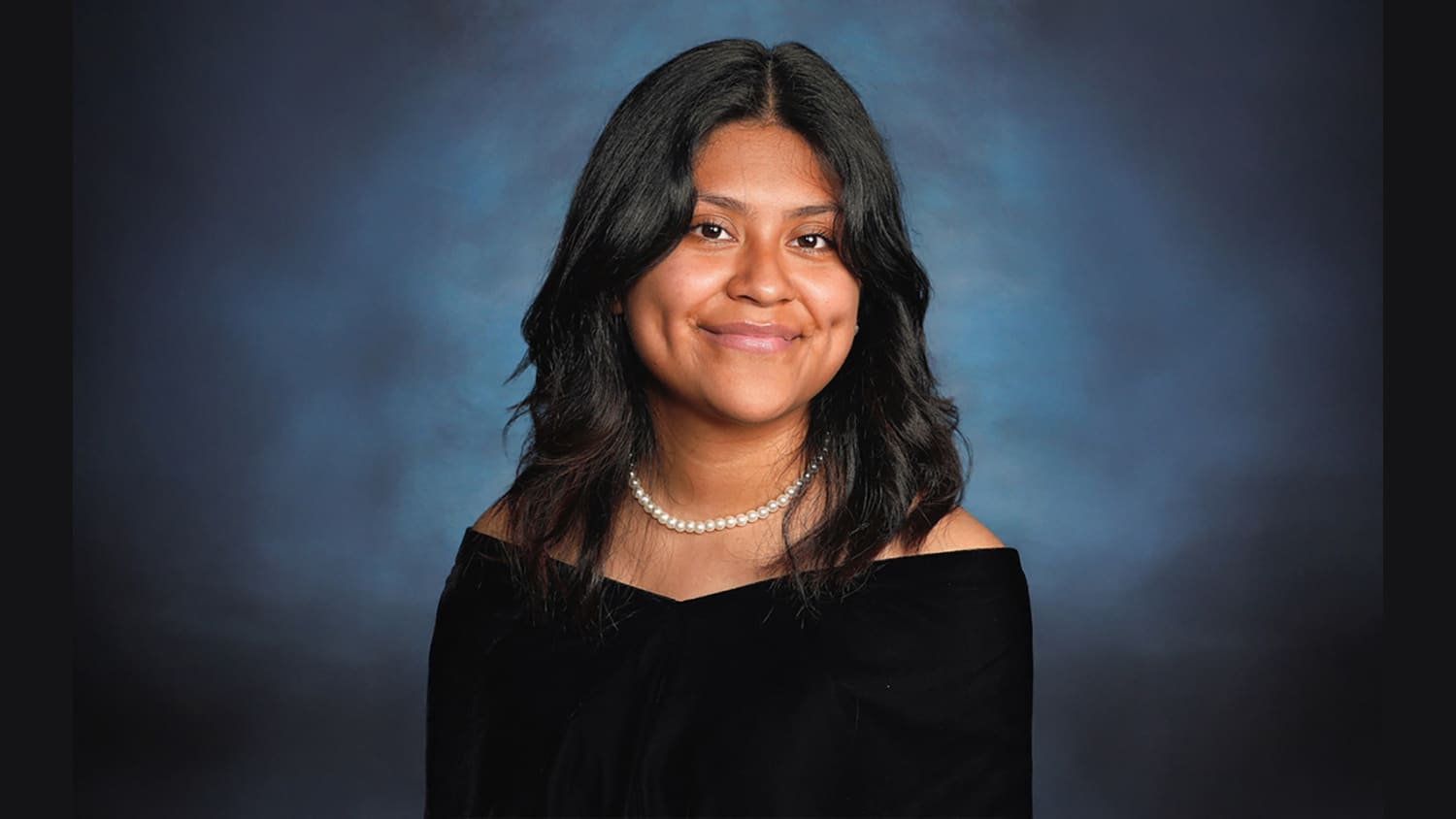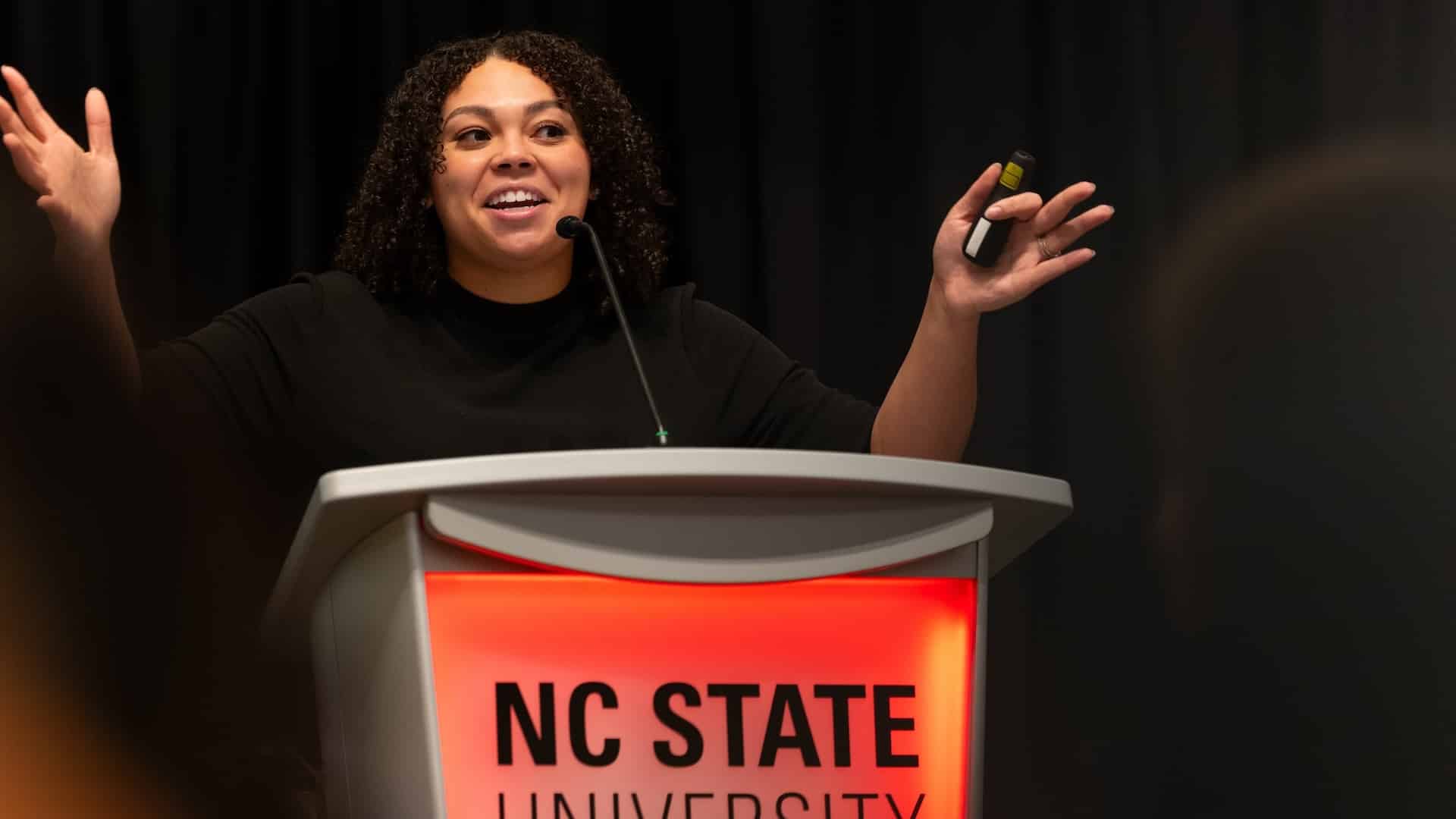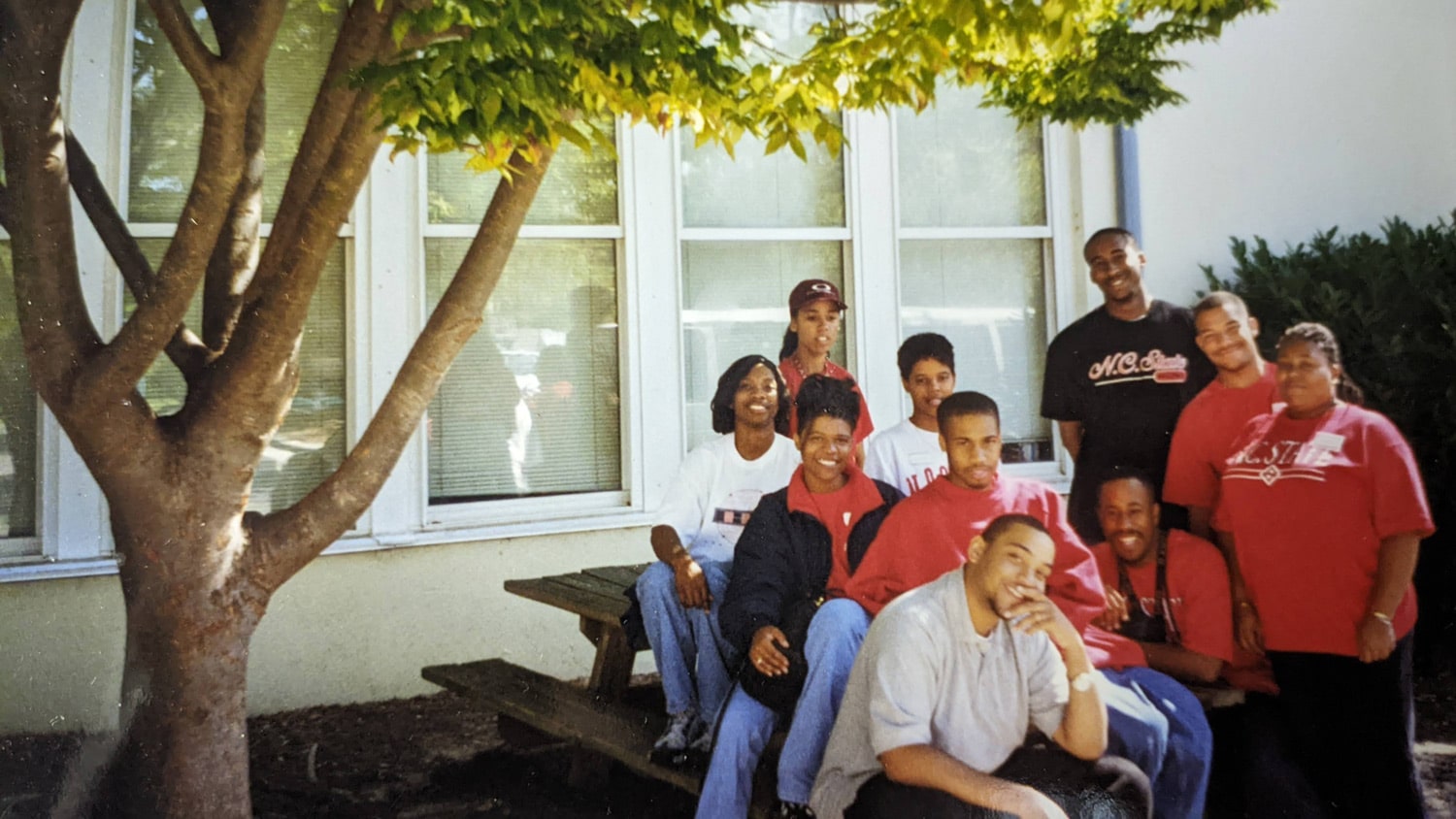Pushing the Limits: Students Find Purpose, Belonging at NC State
Diego Garza Guajardo and Ednah Sangaka grew up across the world from each other, but they both found a home at NC State. Now, they're looking ahead to graduation and beyond.
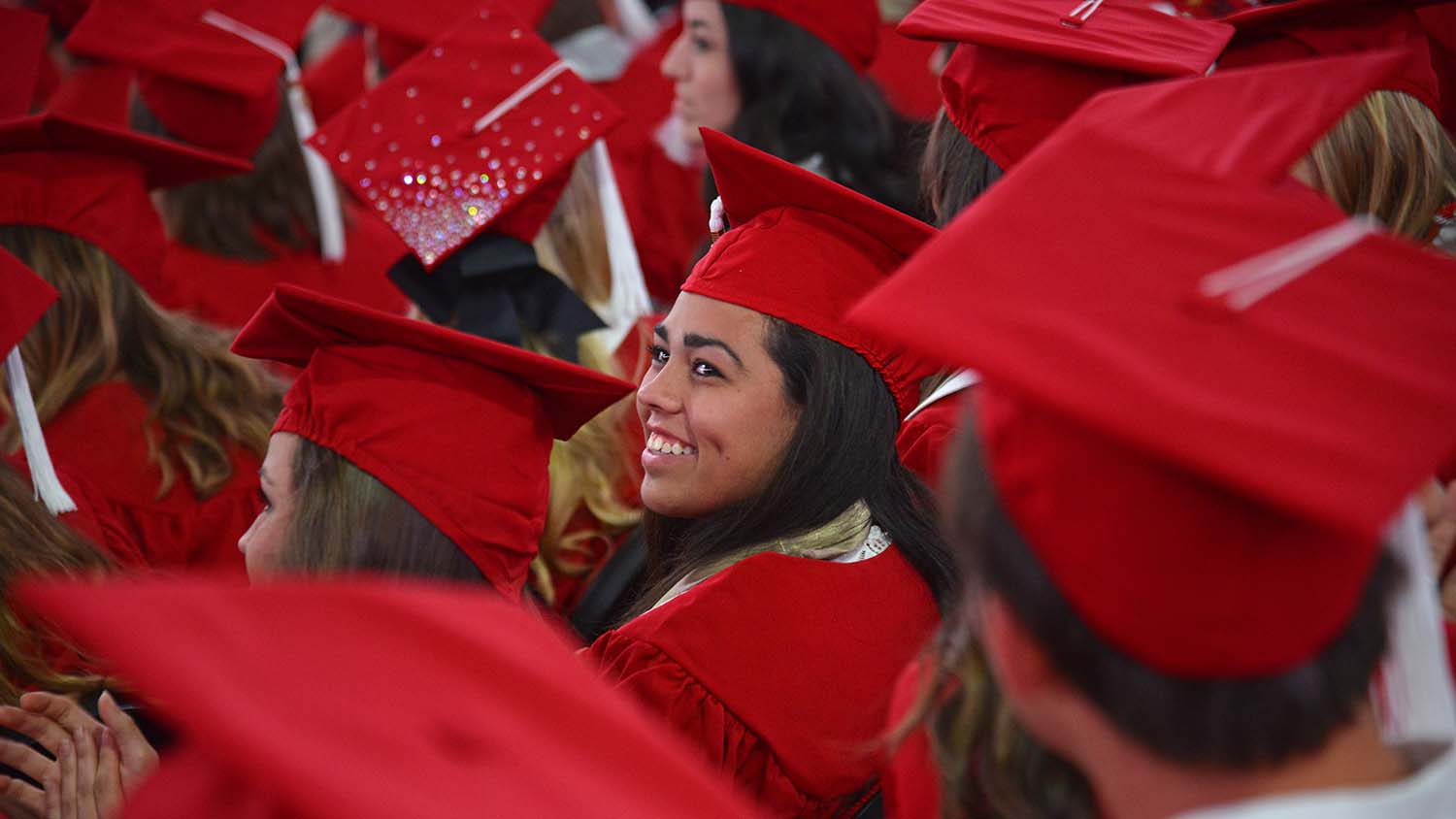
Diego Garza Guajardo, a biological sciences major, and Ednah Sangaka, a mathematics major, grew up 7,664 miles from each other, but on May 7, they’ll be walking across the same stage at commencement.
Their journey to NC State — physically and academically — was a long and challenging one, which makes graduating all the more rewarding.
Coming to North Carolina
Born in Monterrey, Mexico, Garza and his family moved to Wilmington, North Carolina, when he was 2 years old. In middle school, the family moved back to Mexico. Following a six-month study abroad program in Australia, Garza returned to North Carolina during his senior year of high school and set his sights on NC State.
While his parents were supportive, they were unfamiliar with the higher education system in the U.S., and having attended high school in three different countries complicated Garza’s enrollment.
“I really fell in love with NC State’s campus and all the resources they had for people in STEM.”
Transferring his high school credits was a difficult process that took about two to three weeks. It was a race to meet the deadline, but with the help of teachers and peers, Garza successfully enrolled and arrived on campus in the fall of 2018.
“I have a friend from Venezuela who had a similar experience,” he says. “He helped me through the whole process and told me who to talk to. Without his help, I don’t think I could’ve attended here.”
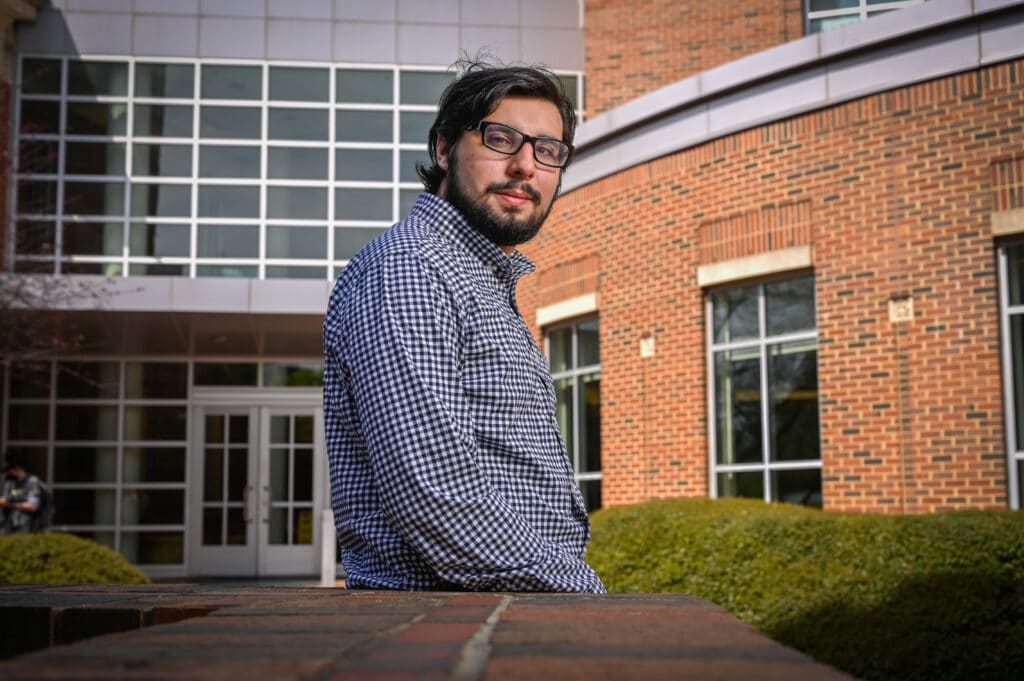
Two years earlier, Sangaka, who grew up in Nairobi, Kenya, had gotten the opportunity to move to the U.S. to join her mother and sister, who were living in North Carolina. She had already completed two years of university in Kenya, and was eager to continue her studies in the U.S. After touring NC State and the University of North Carolina at Chapel Hill, she decided NC State was where she wanted to be.
“I really fell in love with NC State’s campus and all the resources they had for people in STEM,” she says.
Unfortunately, her credits from Kenya weren’t transferable, and the cost of out-of-state tuition was a hindrance. Determined to continue her studies regardless, Sangaka enrolled at Durham Technical Community College.
“It meant I had to start again from scratch, which was a bit heartbreaking,” she says. “I also learned that there is a stigma tied to community college in the U.S., but I wanted to prove that it can still be a path to success. I pushed myself and ended up winning several academic and leadership awards at Durham Tech.”
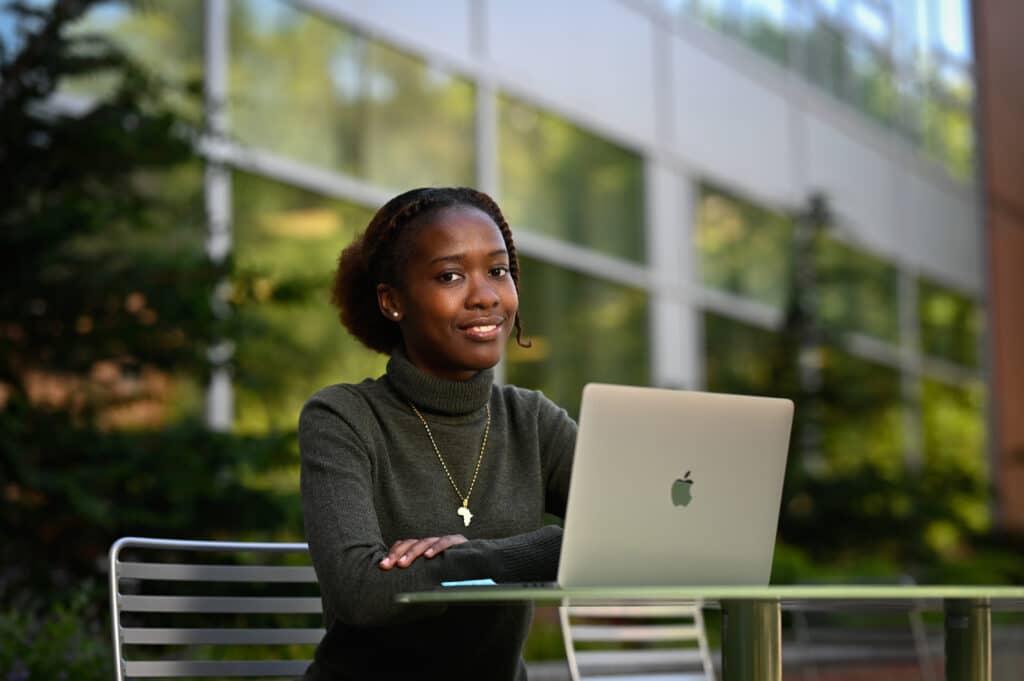
While at Durham Tech, Sangaka also found a second chance to attend NC State through the Community College Collaboration (C3) program, a dual-admission program between NC State and 19 community college partners. In many ways, community college helped her ease into the higher education experience in the U.S.
“I don’t know what my experience would’ve been if I hadn’t attended Durham Tech,” says Sangaka. “When you come to the U.S. from a different country, it’s a culture shock. I enjoyed my experience in community college because there were a lot of people who looked like me. I felt like I belonged.”
Finding Their Path
After excelling at Durham Tech for two years, Sangaka received her acceptance into NC State in the fall of 2019. As a transfer student, she felt imposter syndrome at first. She was used to getting good grades at Durham Tech, and the academic rigor at NC State took some adjustments.
“I’ve just learned how to walk around that and use more effective study techniques and learning techniques,” she says. “It has helped me to remind myself that I’m in a competitive school.”
Sangaka also struggled to find a sense of belonging at first, but she connected with other students through the Goodnight Scholars Program, which supports low and middle-income students from North Carolina in becoming leaders within the STEM or STEM education fields.
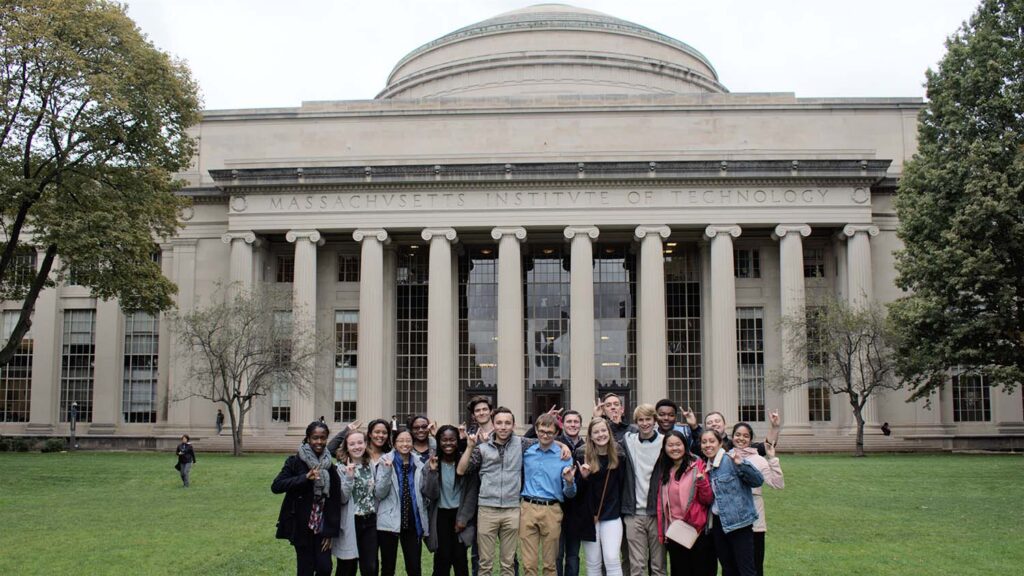
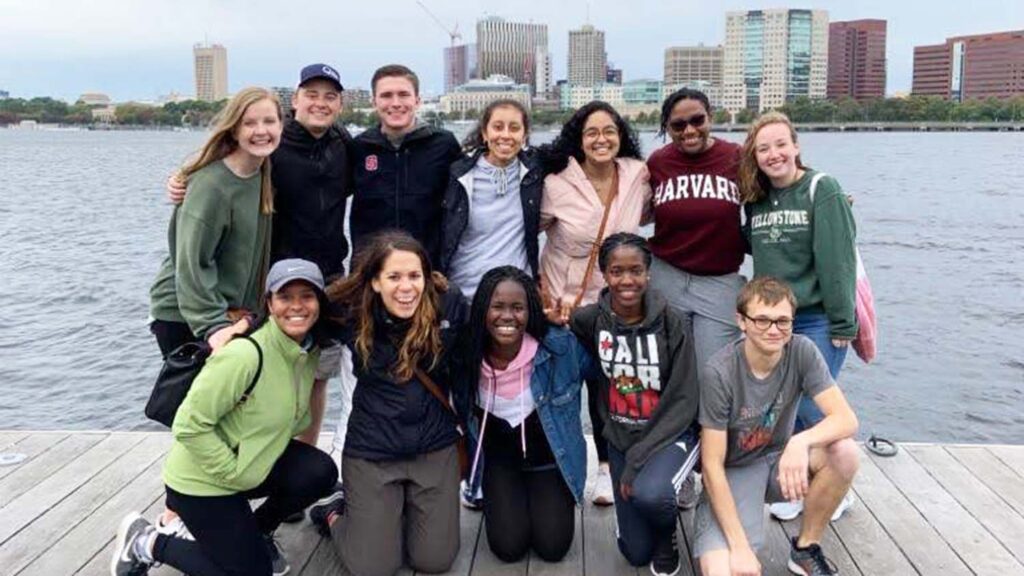
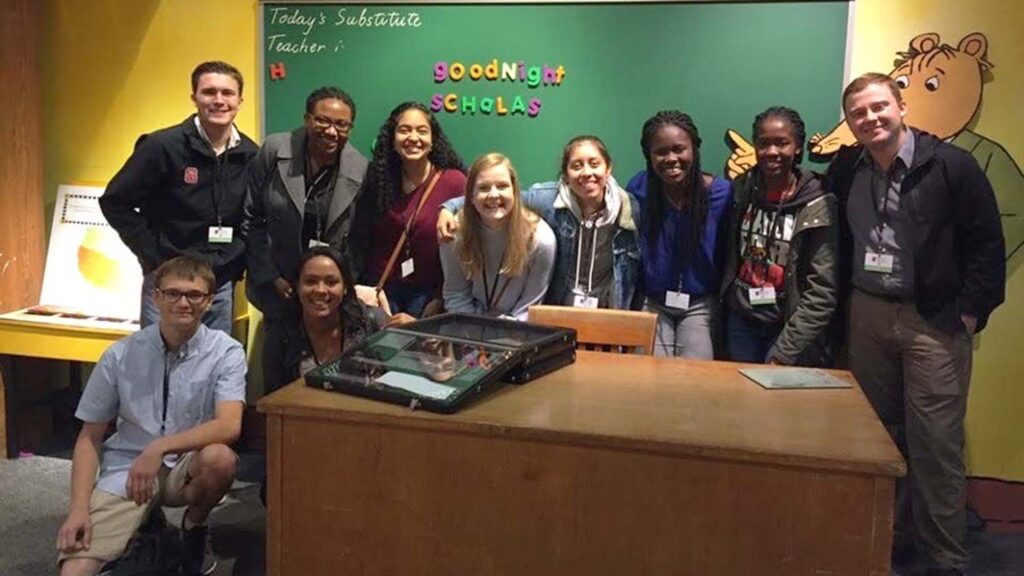
“NC State is such a big university with a very small percentage of people who look like me, but the program is very diverse,” says Sangaka. “There’s people that look like me and people from all different backgrounds. It gave me a sense of community.”
The program has also given Sangaka the opportunity to travel to new places and learn new skills.
“Being in the program isn’t just about financial support,” says Sangaka. “It’s about being in a community of people who are doing amazing things — not just academically, but in the community as well — and inspire you to do good and to find your purpose.”
Through the Goodnight Scholars program, Sangaka has helped organize the LEGO Brick Build, an interactive event for elementary and middle school students to explore STEM. She has visited Trinidad and Tobago, where she learned about environmental conservation efforts at the Asa Wright Nature Center. She has also traveled to Boston, where she learned about technological advancements in the health care industry, tried lobster rolls for the first time and saw her very first musical, “The Lion King.”
“The program helps us come away from class and see the world around us,” she says.
Garza had seen several different places around the world by the time he arrived on campus, but he had no idea that he’d end up exploring different worldviews right at NC State.
Having completed Red Cross training in Mexico — which included disaster relief, wound bandaging and CPR — Garza knew he wanted to study human biology, with the goal of one day attending medical school and becoming a doctor.
He didn’t know he’d end up double majoring in philosophy.
Initially, he took an introductory philosophy course because he felt that learning more about ethics would help him become the best doctor possible. Garza enjoyed the subject matter so much that he continued to take more philosophy classes.
“Philosophy has grown to be a passion of mine,” says Garza. “It’s a very, very valuable subject. It’s important to know how to think, to know why you think in certain ways, to argue effectively and to organize your beliefs in such a way that they’re consistent with each other.”
Pursuing Personal Passions
As a first-year student, Garza landed a position as an unpaid student researcher at the Duke Lemur Center under Lisa Paciulli, a lecturer in the Department of Biological Sciences. After Garza took some of her classes and worked in her lab for two semesters, Paciulli offered him a paid position through the Provost’s Professional Experience Program.
The program, which offers on-campus student researchers a stipend of up to $2,000 each year to give them greater access to research and professional development opportunities, was a welcome source of income for Garza.
“I was working at a fast food place beforehand, and this was definitely a lot better than that,” he says.
His work involved listening to the vocalizations of ring-tailed lemurs and classifying them, observing the frequency of the vocalizations and finding differences in the lemurs’ striations. He learned how to conduct statistical analysis and use different programs to study the vocalizations. Eventually, Paciulli promoted Garza to head researcher of the project.
“I probably listened to over 1,000 vocalizations,” he says.
Garza and the rest of the research team will wrap up the project with a paper on the first-ever recording of a female ring-tailed lemur howling. Ring-tailed lemurs have been observed and studied for decades, but only males had been found to make howling vocalizations until now. The team’s findings means that our understanding of male and female lemur vocalizations, along with the meaning of a ring-tailed lemur howl, will evolve.
Away from academics and lemur research, Garza found a community on campus at the TableTop Gamers Club, of which he is now president.
“It’s where I went to relax on Fridays, after a tough week or a tough exam,” he says. “The club really means a lot to me. At first we were a very small community, but now we’ve grown a lot.”
Sangaka found her own sense of belonging and purpose through advocacy. In 2021, she learned about a crowdfunding campaign for a Kenyan girl living in Denmark who needed treatment for a rare genetic disorder. She reached out to the mother and became part of an outreach team dedicated to helping the family raise $2.18 million for the girl’s treatment.
She distributed flyers on the street, joined weekly meetings to brainstorm outreach tactics and reached out to media outlets. In August, the campaign reached its goal.
“I learned a lot about myself and the things that I can do for the community,” says Sangaka. “I saw my strength and passion for social justice and advocacy in that campaign.”
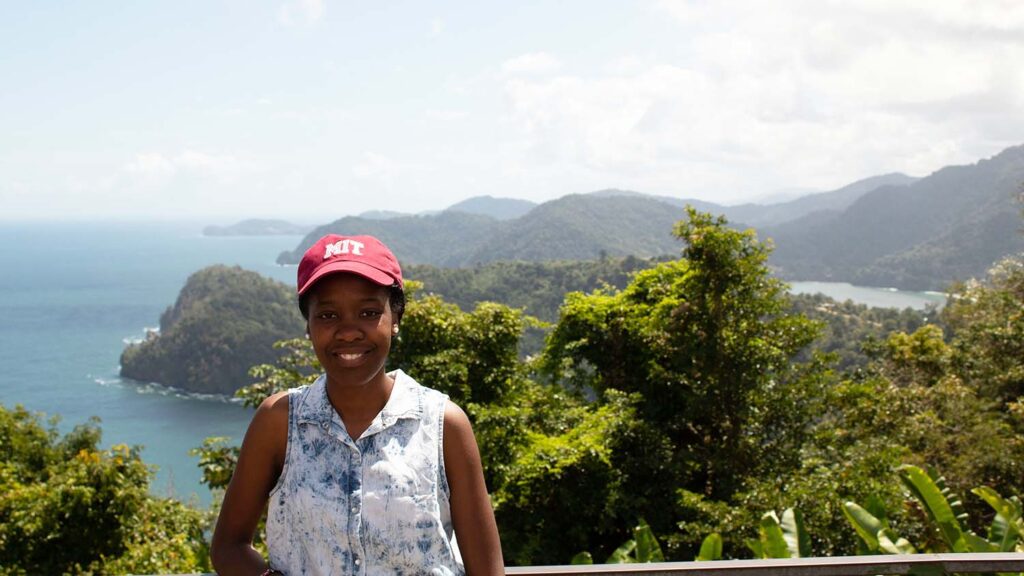
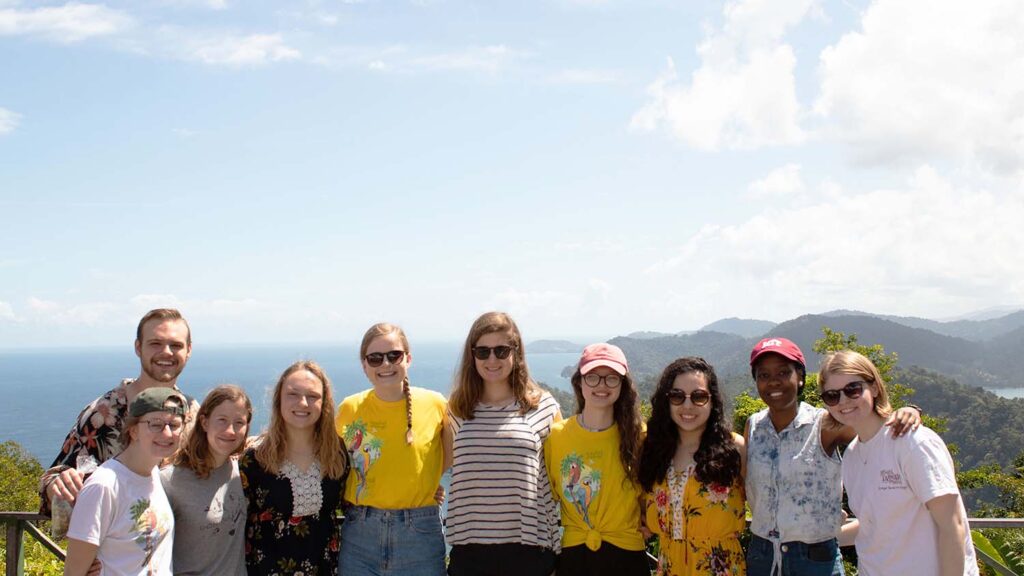
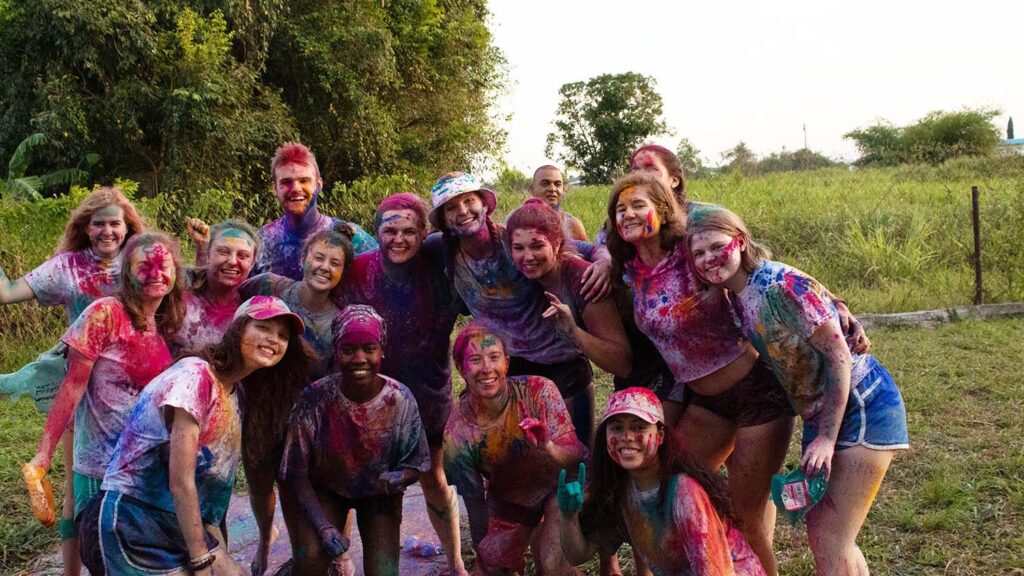
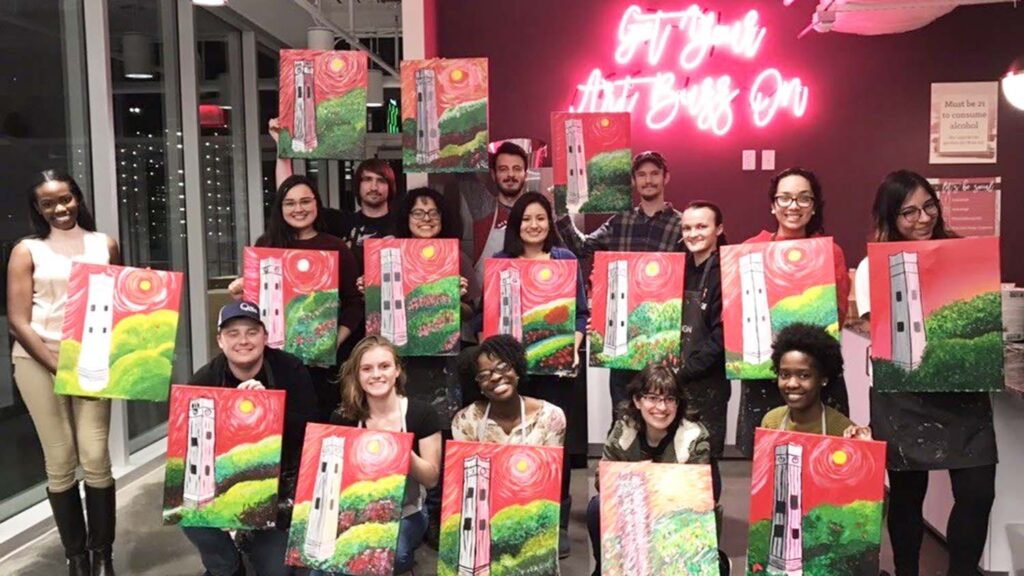
Garza and Sangaka both plan to use the knowledge and experiences they gained at NC State to help others.
To reach his goal of joining Doctors Without Borders, Garza plans to work as an EMT after graduation to gain clinical experience before applying to medical school.
Sangaka will be moving to Boston to work as an actuary for John Hancock Life Insurance, but she hopes to start her own nonprofit in the future to help low-income women and girls in Kenya.
But first, they have to celebrate their accomplishments at NC State.
“My mom and dad are certainly very proud that I’ve gotten this far,” says Garza. “They’ve already invited a bunch of our family over to celebrate.”
“I’m going to be so proud of myself once I graduate — and from this very competitive and well-established institution,” says Sangaka. “It’s helped me grow. Mentally and academically, it’s pushed me beyond limits that I had placed on myself.”
- Categories:
